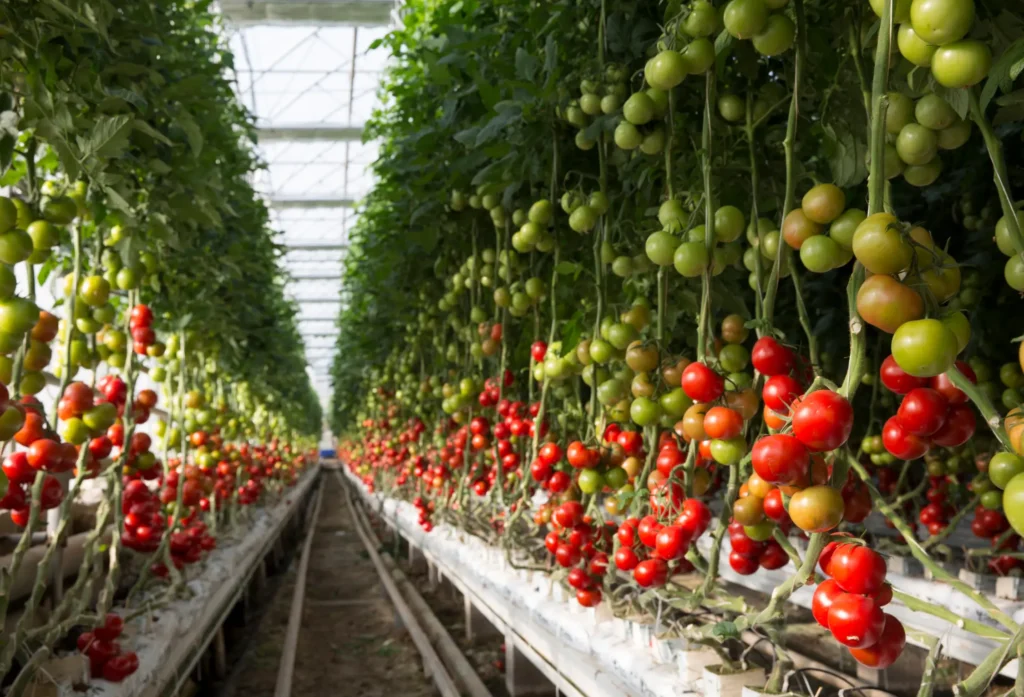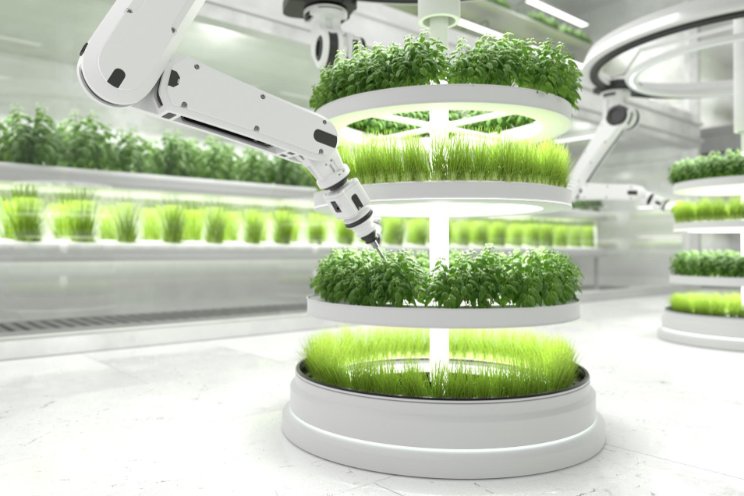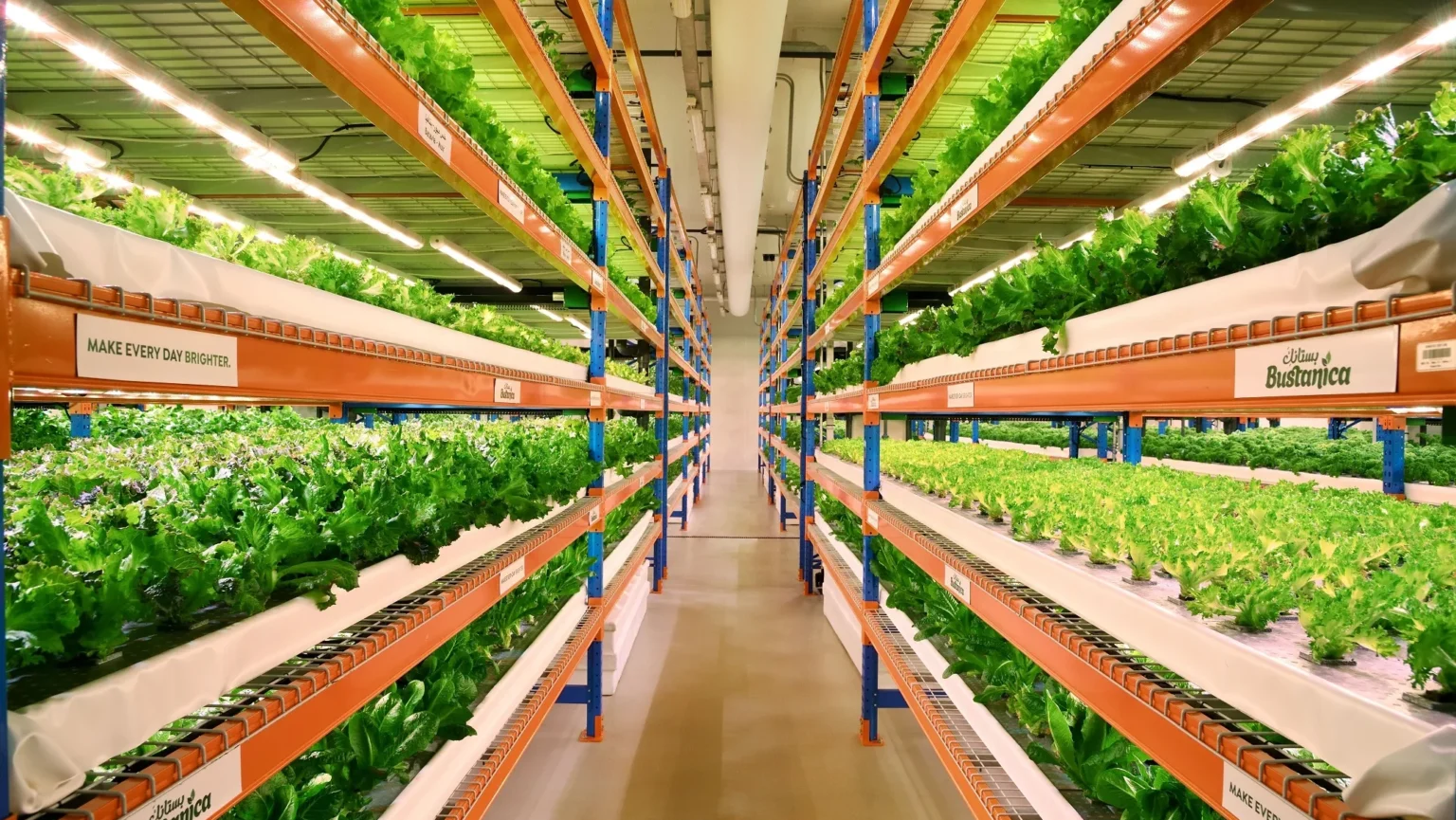Dubai vertical farming is set to transform the way the city produces and consumes food. With its ambitious plans to establish a futuristic vertical farming hub, the UAE’s commercial capital aims to address food security challenges, reduce reliance on imports, and create a sustainable urban agriculture ecosystem. This innovative approach combines technology, sustainability, and efficiency to revolutionize food production in one of the world’s most challenging climates.
Why Dubai Needs Vertical Farming
Dubai’s rapid population growth and its reliance on imported food have highlighted the importance of local food production. The city imports over 85% of its food, leaving it vulnerable to global supply chain disruptions. By introducing vertical farming, Dubai plans to produce more fresh vegetables, fruits, and herbs locally, directly within urban spaces, reducing the city’s carbon footprint and ensuring a more resilient food system.
Vertical farming also addresses the challenges posed by the desert climate, including scarce arable land and limited water resources. With controlled indoor environments, crops can grow year-round, using up to 90% less water than traditional farming. For a city like Dubai, where water conservation is critical, this technology offers a highly efficient solution.
What Makes Dubai’s Vertical Farming Hub Futuristic
Dubai’s upcoming vertical farming hub is not just a typical indoor farm. It is being designed with cutting-edge technologies such as:
- Hydroponics and Aeroponics: These soil-free farming methods allow plants to grow faster while using fewer resources.
- Artificial Intelligence (AI): AI systems monitor plant health, optimize nutrient delivery, and predict crop yields.
- Robotics: Automated systems handle planting, harvesting, and packaging, reducing labor costs and human error.
- Renewable Energy Integration: Solar panels and energy-efficient systems are expected to power the hub, minimizing environmental impact.
By integrating these advanced solutions, Dubai is positioning itself as a global leader in futuristic urban agriculture.
Economic and Environmental Benefits
The Dubai vertical farming initiative is expected to provide multiple economic and environmental advantages:

- Job Creation: The project will generate employment opportunities in agriculture, technology, and research.
- Reduced Imports: Local production will reduce dependency on imported food, keeping prices stable and boosting food security.
- Sustainable Practices: Vertical farms use significantly less water and land, while minimizing pesticide use.
- Lower Carbon Footprint: Growing food locally means fewer transportation emissions and a smaller environmental impact.
Moreover, this hub is designed to serve as a model for sustainable urban living, inspiring other cities in the region to adopt similar practices.
Global Trends in Vertical Farming
Dubai is not alone in embracing vertical farming. Around the world, countries facing land scarcity or harsh climates have turned to vertical agriculture as a solution.
- Singapore: Leading the vertical farming movement, the city-state produces a large percentage of its leafy greens through high-tech indoor farms.
- Japan: Space-saving vertical farms in urban areas help meet the growing demand for fresh produce.
- USA: Cities like New York and Chicago have seen vertical farming initiatives reduce food transportation costs and offer fresh produce to local communities.
By studying these global examples, Dubai aims to implement a hub that is both technologically advanced and economically viable, ensuring long-term success.
Challenges and Solutions
Despite its potential, vertical farming in Dubai faces certain challenges:
- High Initial Costs: Setting up advanced vertical farms requires significant investment in infrastructure and technology.
- Energy Demand: Indoor farms need consistent energy for lighting, climate control, and automation.
- Technical Expertise: Operating high-tech farms requires skilled labor in agriculture, engineering, and data analytics.
To overcome these challenges, Dubai plans to:
- Partner with international vertical farming companies and research institutions.
- Invest in renewable energy sources to power the hub efficiently.
- Launch training programs for local talent to manage and operate the farms.
The Role of Technology in Vertical Farming
Technology is at the heart of Dubai vertical farming. Advanced sensors track humidity, temperature, and nutrient levels in real time, allowing precise control over growing conditions. AI-powered systems analyze data to predict the best growth strategies, while robotics automate repetitive tasks like planting and harvesting.
In addition, IoT devices allow farm managers to monitor multiple facilities remotely, ensuring consistency and efficiency. The use of LED lighting tailored to specific crops accelerates growth while minimizing energy consumption.
Impact on Food Security
Food security is a pressing concern for Dubai and the wider UAE. By producing fresh food locally, vertical farms reduce dependency on imports, ensuring consistent availability even during global supply disruptions. This initiative aligns with the UAE government’s broader vision to strengthen food security and sustainability.

Moreover, vertical farming allows for diversification of crops, providing urban residents with access to a variety of fresh fruits and vegetables throughout the year. This reduces the risk of shortages and supports healthier diets.
Community and Urban Integration
Dubai’s vertical farming hub is expected to integrate closely with urban spaces. Rooftop farms, vertical towers, and community gardens will bring food production closer to residents, transforming the urban landscape.
Educational programs and workshops will also raise awareness about sustainable farming practices. By engaging the community, Dubai is creating a culture of innovation and environmental responsibility that extends beyond agriculture.
Future Prospects
The futuristic vertical farming hub in Dubai is just the beginning. Experts predict that vertical farming will become a standard part of urban planning, with high-rise farms integrated into residential and commercial buildings.
The success of Dubai’s initiative could inspire other Gulf cities to adopt similar projects, positioning the region as a leader in sustainable urban agriculture. With ongoing advancements in technology and increased investment, vertical farming is poised to play a key role in shaping the future of food production.
Conclusion
Dubai vertical farming represents a bold step towards a more sustainable, resilient, and innovative food system. By combining advanced technology, efficient resource use, and community engagement, the city is not only addressing its own food security challenges but also setting a global example for urban agriculture.
Do Follow Gulf Magazine on Instagram
Also Read: Empowering Bahrain: A Visionary Approach to Citizen Digital Literacy



